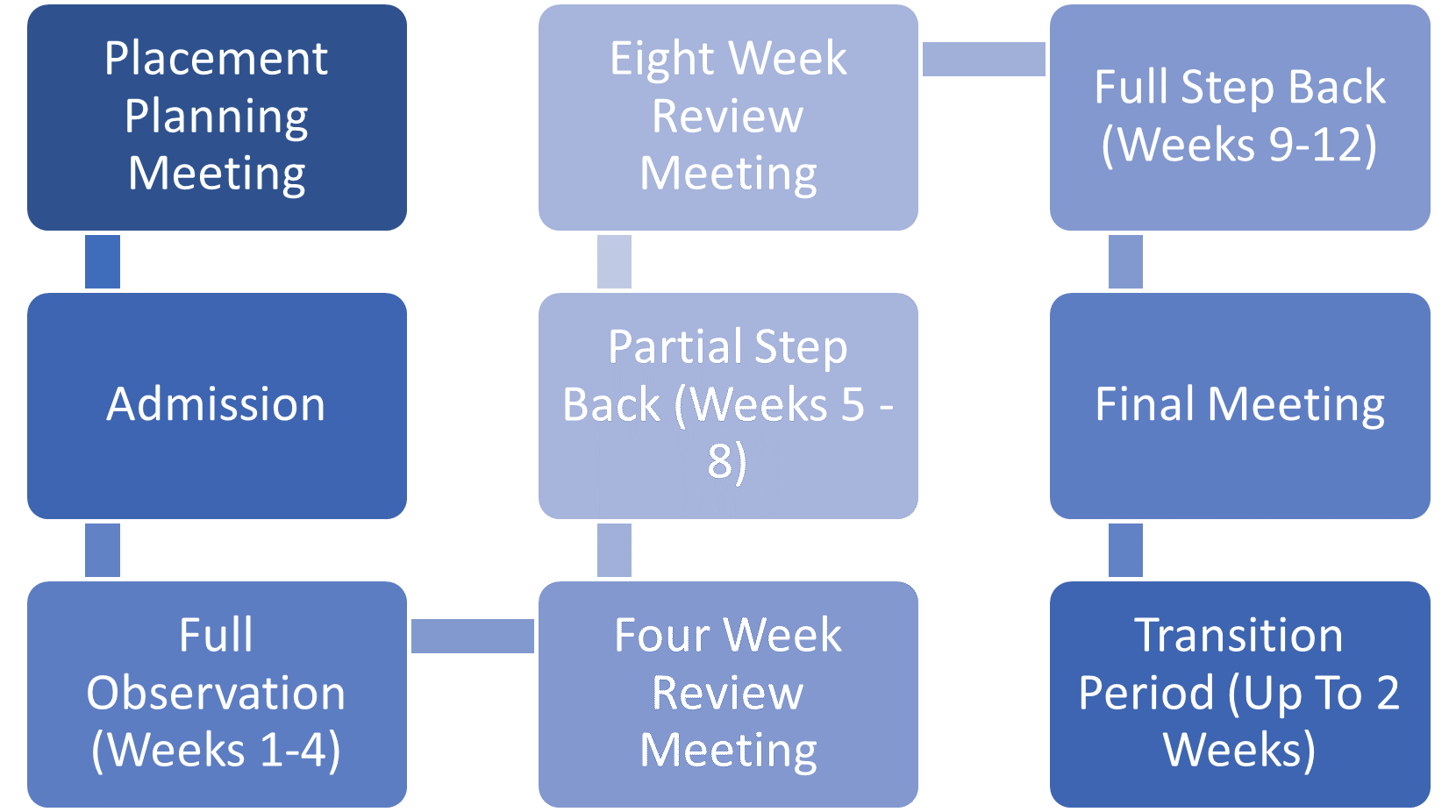Family Assessment Process

Assessment Process
Our parenting assessments follow a structured, phased approach designed to gradually increase parental independence while ensuring child safety and wellbeing.
Full Observation: At the outset, staff closely observe all key parenting tasks, such as feeding, nappy changes, bathing, medication administration, and sterilisation of bottles. Families must notify staff before carrying out any care tasks using the in-room telephone system. Staff are present to offer support, ensure best practice, and contribute to the early stages of the assessment.
Partial Step Back: Once parents demonstrate competency in basic care, staff reduce direct observation. Parents still inform staff of care tasks, and random checks are conducted. Guidance and feedback remain available to support continued progress.
Full Step Back: In the final phase, parents manage daily care tasks independently without needing to notify staff. Monitoring continues discreetly to reflect typical family life, enabling a realistic assessment of parenting capacity in a safe and supportive environment.
Unsupervised Timeout: Unsupervised outings are only permitted from the 'partial step back' phase onward and must be agreed with the placing local authority. Parents must inform staff of their destination and expected return time before leaving the centre.
Transition between assessment phases will vary between families, but the diagram below provides a rough guide.


At First Blue Family Assessment, we use evidence-based tools to guide our parenting assessments, including the Framework for the Assessment of Children in Need and Their Families, which provides a structured approach to understanding the needs of children and the capacity of parents to meet those needs within their wider family and community context.
The ParentAssess model is used for most assessments across our Centres, even where there is no identified learning need. This is because the model is also highly effective for parents facing challenges related to poor mental health, substance use, domestic abuse, trauma, or other complex needs. ParentAssess explores five key areas: the child’s experience of being parented, including how physical and emotional needs are met; parental functioning, such as decision-making, risk awareness, and the impact of the parent’s own history; specific issues including domestic abuse, offending, substance use, or gambling; the parent’s daily living skills, including their ability to maintain a safe and organised home environment; and the strength and accessibility of the parent’s support network. This structured and strengths-based model enables practitioners to build a clear, compassionate, and evidence-informed picture of parenting capacity and areas for development, while remaining focused on the lived experience of the child.
Contact Us about Childrens Residential Care
Don't hesitate to get in touch.